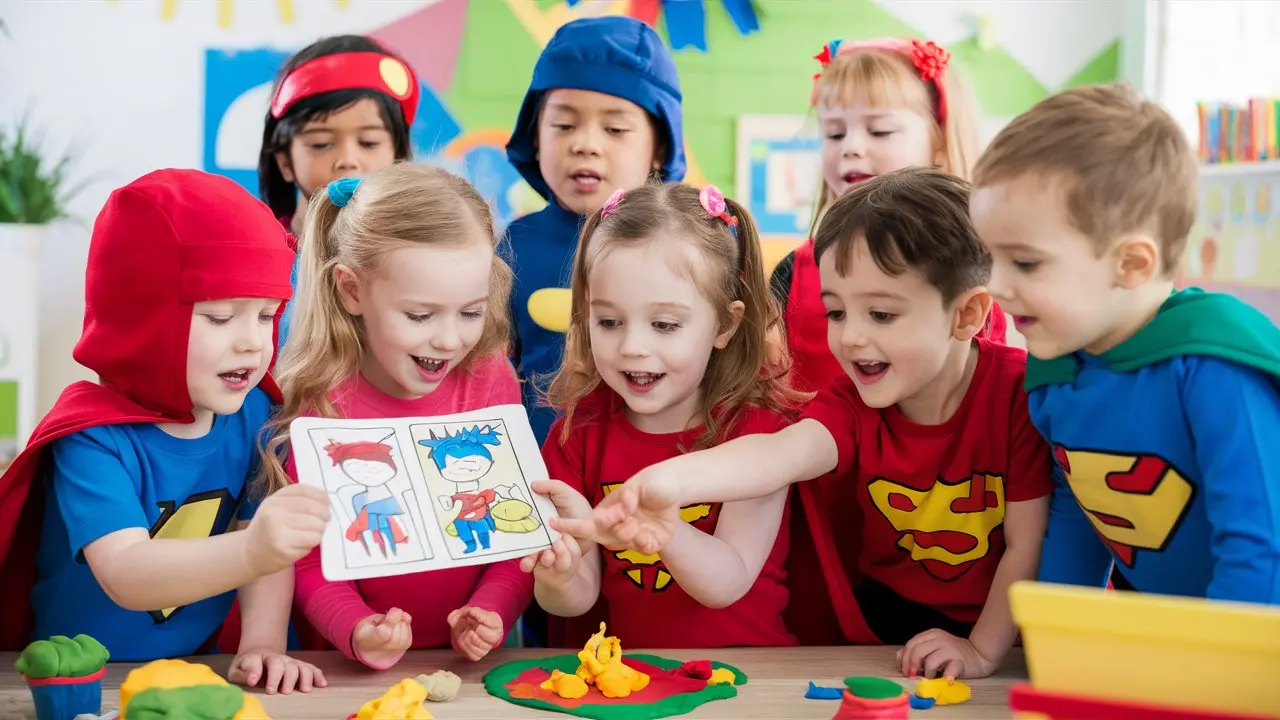The Importance of Communication Skills for Kids
Communication is a fundamental life skill that children need to succeed at school, in their relationships, and eventually in the workplace. Parents and educators need to support kids in developing these skills early on. Studies show that early mastery of communication skills can lead to improved academic success and better social interactions. For example, engaging in communication games for kids can significantly aid in this developmental process by making learning fun and interactive.
Children who develop strong communication skills early are better equipped to express their ideas, understand others, and navigate social situations effectively. This foundation not only supports academic achievements but also fosters emotional intelligence and resilience. By articulating thoughts clearly and listening actively, kids learn to cooperate and resolve conflicts, setting them up for successful interpersonal relationships throughout their lives.
Fun Games to Improve Communication Skills
One effective way to enhance communication for kids is through interactive and engaging games. Here are some popular options:
- Telephone Game: This classic game improves listening skills and verbal communication. Children sit in a circle and whisper a message down the line, showing how messages can be misunderstood. This game teaches the importance of clarity and the potential pitfalls of miscommunication.
- Charades: This game encourages kids to use non-verbal cues to communicate. A child acts out a word or phrase, and the others must guess what it is. Charades help children understand body language and enhance their ability to interpret others’ actions and emotions.
- Story Cubes: Using dice with images, children create stories. This helps them think creatively and articulate their ideas clearly. Telling stories using visual prompts encourages linguistic creativity and logical sequencing of thoughts.
Other Exciting Communication Games
Additionally, there are numerous other engaging games designed to enhance kids’ communication skills. Games like “Two Truths and a Lie,” where each child states two facts and one falsehood about themselves, encourage children to pay close attention and think critically. This activity nurtures discerning listening and critical thinking, as children must sift through information to detect falsehood.
Similarly, “Pictionary” can improve kids’ ability to convey messages graphically, while “20 Questions” helps them develop their inquiry skills and understand the importance of precise questioning in communication. Both these games emphasize the value of asking the right questions and provide practice in providing and interpreting clues effectively.
Practical Tips for Integrating Communication Games
Here are some suggestions for parents and educators to seamlessly incorporate these games into their routines:
- Designate specific times each week for game sessions. Creating a consistent schedule helps establish a routine, so children know when to expect these fun learning activities.
- Encourage all participants to join in, making it a regular family or classroom activity. Involving everyone can build a sense of community and teamwork, making the experience more rewarding.
- Use positive reinforcement to celebrate small achievements and progress. Recognizing and celebrating milestones, no matter how small, can boost children’s confidence and motivate them to keep improving their communication skills.
Creating a Game-Friendly Environment
Setting up a conducive environment for playing these communication games is crucial. Ensure that the space is comfortable and free from distractions to help children focus on the activity at hand. Having a dedicated space for these games can make the experience feel unique and distinct from other daily tasks.
Encourage an atmosphere where kids feel safe to express themselves without fear of judgment. Creating a positive and supportive environment helps children feel more at ease and willing to participate. Remember, the goal is to make communication learning a fun and rewarding experience, so prioritize enjoyment and positive interactions over strict rules or competition.
Real-Life Examples and Success Stories
Many parents and educators have successfully used communication games to enhance kids’ social abilities. For instance, a teacher in California noticed a significant improvement in her students’ teamwork and cooperation skills after routinely incorporating these games into her lesson plans. This change fostered a more collaborative and respectful classroom environment.
Another parent observed her shy child gain confidence and actively participate in class discussions after engaging in regular family game nights. The child’s newfound communication skills not only helped in academic settings but also in forming new friendships and participating in extracurricular activities.
These real-life examples underscore the impact of integrating fun learning activities. One group of scouts used communication games to prepare for a community service event, improving their coordination and project planning. The scouts reported feeling more prepared and confident, thanks to the practice they had in communication through play.
Keep an eye for more latest news & updates on Possiblyethereal!
